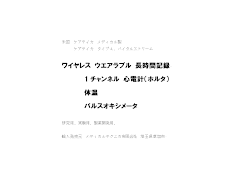Heart Failure Care Improved By Performance Intervention
At Outpatient Cardiology Practices
Reported in the July 26 online edition of Circulation, the new
program provided key interventions including clinical decision
support tools, structured improvement strategies, and medical
chart audits with feedback to help clinicians better provide heart
failure therapies that have been proven to improve patient survival
and other clinical outcomes.
"We found substantial, clinically relevant improvement in the
number of heart failure patients receiving key treatments after
introducing this new performance improvement intervention
program at the participating cardiology practices," said first author
Dr. Gregg Fonarow, Eliot Corday Professor of Cardiovascular
Medicine and Science and director, Ahmanson-UCLA
Cardiomyopathy Center, David Geffen School of Medicine at UCLA.
For the study, researchers utilized a new program called the
Registry to Improve the Use of Evidence-Based Heart Failure
Therapies in the Outpatient Setting (IMPROVE HF) at 167
cardiology practice clinics in the United States. Participants
included 34,810 patients diagnosed with a previous heart attack,
weakening left heart ventricle function, or chronic heart failure,
which is a condition occurring when the heart's left ventricle can no
longer pump enough blood to the body's other organs.
The program applied interventions to help ensure that heart failure
patients received seven national standard of care level treatments
as recommended in heart failure guidelines developed by the
American College of Cardiology and the American Heart
Association.
Medical chart reviews performed at baseline before adopting the
program and at several points in time up to two years after
initiation of the IMPROVE HF program revealed significant
improvement in use of five of the seven evidence-based, national
guideline-recommended heart failure treatments targeted in the
study. Researchers found:
_1、 Beta blocker medication use increased 6.2 percent, up from
86 percent at baseline to 92.2 percent after the interventions.
_ 2、Aldosterone antagonist medication use rose 25.1 percent,
increasing from 34. 5 to 60.3 percent.
_ 3、Cardiac resynchronization therapy, a device to help
coordinate the heart's contractions, had a reported increased
use of 29.9 percent, up from 37.2 percent at baseline to 66.3
percent.
_ 4、Use of implantable cardioverter-defibrillator devices, which
help regularly pace abnormal heartbeats, increased 27.4
percent, from 50.1 to 77.5 percent.
_ 5、Heart failure patient education also rose 12.6 percent, from
59.5 to 72.1 percent.
"We demonstrated increased use of the majority of the guideline recommended
therapies assessed in the study," said Fonarow.
He noted that overall, opportunities to provide national guideline recommended
therapies to eligible patients increased from 68. 4 percent at baseline
to 80.1 percent at two years after initiating IMPROVE HF interventions.
According to researchers, this increase is significant, especially
given the wide range of cardiology practices across the country
included in the study, the majority of which were community based.
"The IMPROVE HF program may help establish a model and
framework for future performance-improvement programs
administered in an outpatient setting for cardiology practices," added Fonarow.
The demonstration of substantial change in the use of guidelinerecommended
therapies among practices participating in IMPROVE
HF provides direct evidence in support of applying this or programs
of similar design nationwide.
2010年8月7日土曜日
登録:
コメントの投稿 (Atom)


















0 件のコメント:
コメントを投稿